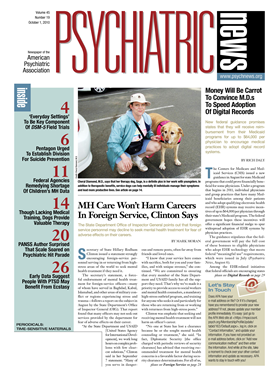Proposed federal tax policy changes allowing lawyers to write off some lawsuit expenses have drawn physician opposition over concerns that the changes would spur many more malpractice claims.
Although the Obama administration has not confirmed that such tax-policy changes are under consideration, physician advocates learned that the Treasury Department is considering such a proposal.
The controversial proposal in tax regulations stems from a 1995 federal appeals court decision that reversed a lower court ruling and allowed lawyers to write off the cost of litigation in the year that it was incurred, instead of when they actually received a payment through an injury award or settlement. Other federal courts have not ruled on this issue. If the government implements the proposed tax-code change in line with this ruling, it would drastically lower lawyers' risk-adjusted cost for pursuing medical malpractice claims, which are often accepted on a contingency basis, and spur a large increase in such cases, according to physician advocates.
The AMA and 90 state and medical specialty societies have united in opposing the proposed tax changes.
“[W]e find it perplexing that the Treasury Department would consider a change in policy that could add to the cost of health care, especially at a time when our nation is engaged in implementing comprehensive health care reform and expanding coverage to the uninsured,” wrote the physician groups in a September 1 letter to Treasury Secretary Timothy Geithner. “We would object in the strongest possible terms to any change in federal tax policy that could increase meritless claims and add unnecessary costs to our health care system.”
The physician groups estimated that the write-off would cost the Treasury “over $1.5 billion” in lost tax revenue over 10 years and would encourage frivolous litigation.
A change that spurs more malpractice claims could have significant consequences for physicians due to the $22,000 estimated average cost physicians face in defending themselves from meritless lawsuits, according to the AMA. A surge in lawsuits also could drive up overall health care costs, based on Congressional Budget Office estimates that malpractice claims already cost $54 billion over 10 years through litigation expenses and the associated defensive-medicine practices that physicians may order to protect themselves should a malpractice claim be filed against them.
APA has not opted to join the effort to battle such tax regulations because the Association's efforts are focused on numerous issues arising from the health care overhaul, and psychiatrists are the clinicians least likely to be the target of a malpractice claim.
An August analysis of thousands of physician responses to the AMA's 2007-2008 Physician Practice Information survey concurred that psychiatry had one of the lowest rates of medical-liability claims among all specialties, with psychiatrists averaging only about 40 career claims per 100 physicians compared with a medicine-wide average of 95 medical liability claims filed for every 100 physicians (Psychiatric News, September 3).
